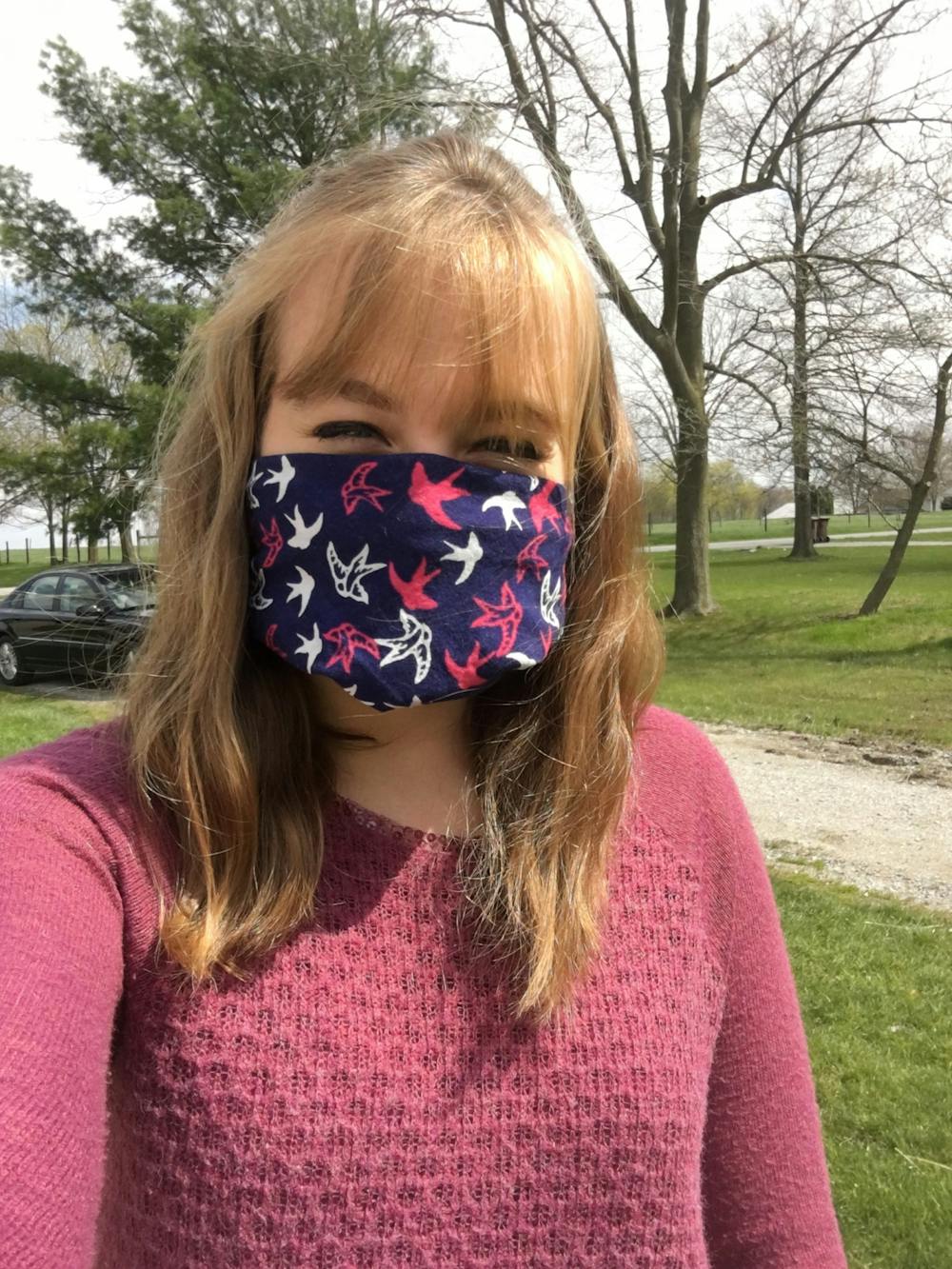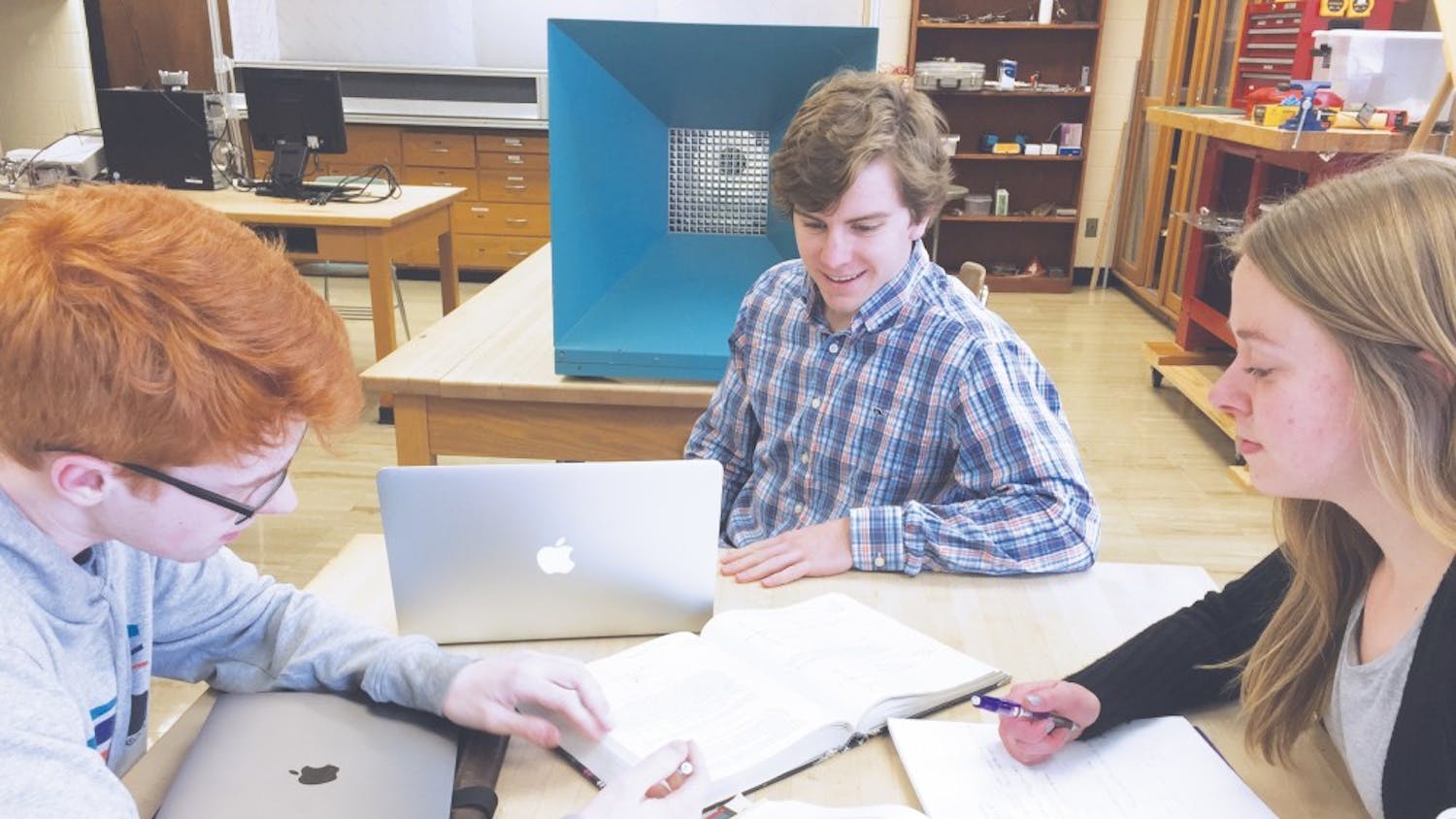Without the ability to read lips, Abbey Russell says it is like words get blurry.
Russell, a senior, is deaf in one ear and has partial hearing in the other. She uses a hearing aid but relies on reading lips.
Because of this, the widespread use of masks can make navigating the world difficult.
“My hearing aid can only pick up some things, especially with muffled voice through masks, so it’s still hard to understand without reading lips,” Russell said.
This is not the first time Russell has encountered the problems with masks.
Russell is studying to become a doctor and has observed hospitals where elderly and hard of hearing patients are often confused by medical personnel wearing masks. She has always dreamed of incorporating methods of hearing assistance in her medical practice.
“The COVID crisis is making me more aware of issues that I always knew existed, especially with how widespread this issue is,” Russell said.
CNN reported that some people have begun making clear masks, so lip reading can remain a safe option.
However, Russell said this is just a starting point.
“That makes me super excited — obviously, this is all super hard, but to think that these issues are being brought to light is really encouraging,” Russell said. “However, just like not every person knows sign language, not everyone can lip read.”
Instead, Russell said this demonstrates an area of medicine that can be improved overall. Microphone and speaker materials, written communication and other formats can all be better developed to help the estimated 15% of American adults who have hearing loss.
In the meantime, there are ways people can seek to help those around them.
“From a young age, I was taught to self-advocate for what I need, but not everyone does and it can be an awkward thing,” Russell said.
According to Russell, it can be particularly difficult for the people with hearing loss to communicate their needs, since it involves a level of vulnerability.
Even Russell admits that her level of comfortableness with talking about her hearing loss has fluctuated. Because she knows how the journey can be, she encouraged people to be kindly aware of those around them.
If someone seems to have a confused look in their eye, Russell recommended to kindly repeat something or signal with simple sign language. It may take time or it may be difficult, however, the most important thing is to be patient and communicate a smile through the eyes.
“It can already be hard to demonstrate a need, and it makes it more difficult when it seems like someone is frustrated or annoyed,” Russell said.
Ultimately, Russell has made it a point to continue advocating for those around her who are unable to speak up for themselves. She said she feels like the personal growth she has gone through with her hearing loss has prepared her for a time like this.
Because of her specific condition, Russell could lose her remaining hearing. This used to weigh on her, but over time she grew to appreciate what she has now and trust God in the meantime.
Right now, Russell feels like most of the world is in the same situation — nobody is sure how bad things will get or when that will be, but God is still sovereign.
“This is the time where Christians will be watched — how are we rising above fear to be wise and peaceful?” Russell said. “That same peace and servant’s attitude is how we should be loving people with different conditions right now . . . our takeaway should be in how we treat each other.”




